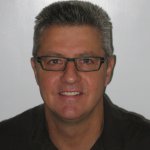Professor Simon Lenton is one of two Deputy Directors at the National Drug Research Institute (NDRI) at Curtin University, where he has worked since 1993. He also works part time as a clinical psychologist in private practice. Simon’s research interests include bridging the gap between drug policy research and drug policy practice, illicit drug use and harm reduction, impact of legislative options for drugs and availability of take-home naloxone. He has published widely on drugs, health and the law and provided advice to a range of government and private organisations, both in Australia and internationally, on evidence based drug policy and other drug issues.
Simon Lenton

This weekend I will... play bridge with my wife Tanya and some good friends, get up early and talk to the cats, torture the neighbours with some guitar practice, get in a surf if there is any, watch my son play basketball, and on Sunday night enjoy watching Tanya laughing her head off at a Danny Bhoy gig.
I wish I'd never... started getting drunk most weekends from age 15 to 17. I think that my early initiation really set me back and without it I could have been truly smart.
I'd originally planned to work... as a lawyer, but did a mandatory year of Arts, failing economics and enjoying philosophy, politics and psychology, and followed my nose by converting to a BPsych and then doing an MPsych(clin).
The qualities I most value in my colleagues are... their passion and commitment to asking, and attempting to answer, the right research questions to improve alcohol and other drug policy.
I'll never forget... how fortunate I was to have landed a job at NDRI (then NCRPDA) in 1993 with some ideas but no PhD. I doubt I would have made it if I was trying to start an academic career in the current funding and ‘publish or perish’ climate.
If I had more time, I'd... go on a holiday separately with each of my kids Zac (11) and Ruby (13) to spend time with them without the usual routines and family dynamics. In fact I have just decided that I will make time to do that.
I'm most scared of... my wife or kids having a terrible accident or getting really sick.
For my next holiday... In two weeks we are off on a month-long family trip, National Lampoon style, to the USA - LA, Disneyland, Route 66, Grand Canyon, Monument Valley, Arches, Bryce and Zion National Parks, Vegas, San Fran and NY. Anyone for slides?
I can't get enough of... Roy and HG. I have podcasts of every episode of the last five years of their radio show ‘This Sporting Life’. I’d love them to come back and do some new stuff, but I still get a kick out of listening to those old episodes.
I'm really terrible at... doing an equal share of the housework, even though my wife works harder and longer than me.
Career wise, I’m most proud of... The Fitpack Study we did in 1996, which was a small ($29,000) mail-back study of a short questionnaire which went out with needle packs sold through community pharmacies in Western Australia. The study accessed a diverse group of drug injectors, not typically seen in agency and peer recruited research, which challenged the rigid stereotype held by many about people who inject drugs. It was found that only 28% had any specialist drug treatment agency contact, 42% were parents, 46% were employed, mostly in full time work, and only 40% were injecting every day. Respondents provided useful feedback about how harm reduction strategies among injectors can be improved. Results of the study were successfully used to support public health initiatives to expand the range of equipment sold to drug injectors through WA pharmacies. But most significantly, on the back of media coverage about the findings, a number of people contacted me to say that challenging the stereotype had helped them to feel part of the community like anyone else and some were able to discuss their drug use with their family for the first time.
My big hope for the drug and alcohol sector is... that we find a way to improve the hit rate for competitive research funding up from the current 10-12%. It is ironic that it is so hard to get funding for research to address drug policy questions which cross health and law enforcement sectors, and that policy makers and the public would like answers to. It’s a given that we always need more funds for drug treatment, but the time and energy expended by clever people trying to get research dollars against these odds could be far better spent.
The sector's biggest challenge going forward is... lack of leadership for innovation on drug policy. We were once a world leader in this field, but we are far from that now. We need political vision and leadership to allow law enforcement and health to pilot and evaluate new ways to work together in response to ever changing challenges in the drugs field. In my view repeating the mistakes of alcohol and tobacco with currently illegal drugs would be a disaster. But unless we are prepared to consider, trial and evaluate new approaches of non-commercial regulated availability we will be stuck with the current carnage from alcohol and other drugs. Drug problems are hard enough for individuals and families to deal with. Surely we can do more to have a better system of drug control. We just have to start thinking outside the box and trialling evidence-based, politically viable, innovative approaches.











